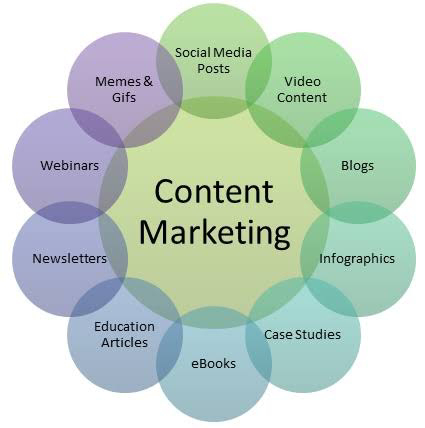Passionate blogger exploring a world of words and ideas. With a love for diverse topics, I navigate through the digital landscape, sharing insights, stories, and perspectives. Join me on this journey of curiosity and discovery as we delve into the realms of knowledge and creativity.
Saturday, 28 October 2023
Demystifying Digital Marketing: A Glossary of Essential Terms
Unlocking the Power of Digital Marketing: An Introduction to the Digital Frontier
Welcome to the digital age, where connectivity and innovation converge to reshape the way businesses engage with their audience. Digital marketing has emerged as the linchpin of modern-day promotion, offering a myriad of strategies to navigate the vast online landscape. In this blog, we embark on a journey through the fundamental aspects of digital marketing, unlocking its potential and understanding its transformative impact.
The Digital Marketing Landscape:
Digital marketing encompasses a diverse set of online tactics designed to promote products or services. Unlike traditional marketing, this dynamic field leverages the internet, technology, and various digital channels to reach and connect with a targeted audience. Let's delve into some key components that make up the tapestry of digital marketing.
1. Search Engine Optimization (SEO):
At the heart of digital visibility lies SEO. This practice involves optimizing your online content to rank higher in search engine results. By understanding and incorporating the algorithms that search engines use, businesses can enhance their online presence, making it easier for potential customers to find them.
2. Content Marketing:
Quality content reigns supreme in the digital realm. Content marketing involves creating and distributing valuable, relevant content to attract and engage a specific audience. Whether through blog posts, videos, or social media, compelling content builds trust, establishes authority, and keeps your audience coming back for more.
3. Social Media Marketing:
The ubiquity of social media has transformed it into a powerhouse for businesses. Social media marketing involves leveraging platforms like Facebook, Instagram, Twitter, and LinkedIn to connect with your audience, build brand awareness, and foster engagement. It's a dynamic space that allows for real-time interaction and relationship-building.
4. Email Marketing:
In the clutter of the digital world, email marketing provides a direct line of communication with your audience. Through personalized messages, promotions, and newsletters, businesses can nurture leads, retain customers, and drive conversions.
5. Pay-Per-Click (PPC) Advertising:
For businesses looking for immediate results, PPC advertising is the go-to strategy. This model involves placing ads on search engines or social media platforms and paying a fee each time a user clicks on the ad. It's a targeted approach to drive traffic and increase visibility.
6. Analytics and Data-Driven Decision Making:
One of the digital marketer's greatest assets is the wealth of data at their fingertips. Real-time analytics allow businesses to track the performance of their campaigns, understand user behavior, and make informed, data-driven decisions for continuous improvement.
Why Digital Marketing Matters:
1.Global Reach:Digital marketing breaks down geographical barriers, enabling businesses to reach a global audience.
2.Targeted Precision: Precision targeting ensures that marketing efforts are directed towards the right audience, increasing the likelihood of conversion.
3. Measurable Results:The digital landscape provides measurable results, allowing businesses to assess the success of their campaigns and optimize strategies accordingly.
4. Adaptability:In a rapidly changing environment, digital marketing allows for quick adaptation and adjustment of strategies to stay ahead of the curve.
In conclusion, digital marketing is not just a tool, it's a dynamic ecosystem that demands exploration and mastery. As technology advances, so does the potential within this digital frontier. By understanding its nuances and harnessing its power, businesses can forge meaningful connections, foster brand loyalty, and thrive in the digital age. Welcome to the future of marketing – welcome to the world of digital possibilities.
Unlocking Success: Effective Strategies to Grow Your Business
In the fast-paced world of business, growth is not just a goal; it's a necessity for long-term success. Whether you're a start - u...
-
Welcome to the digital age, where connectivity and innovation converge to reshape the way businesses engage with their audience. Digital m...
-
Introduction: In the ever evolving digital landscape, mastering the art of Search Engine Optimization (SEO) is crucial for anyone looking t...
-
In the fast-paced world of business, growth is not just a goal; it's a necessity for long-term success. Whether you're a start - u...















